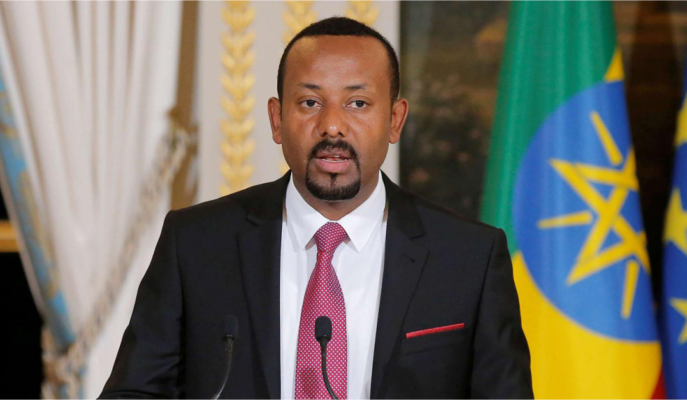Africa is now realising its potential and capacity, with the formerly side-lined continent harnessing its demographic dividend and natural resources and becoming an economic, political, and social powerhouse, Ethiopian Prime Minister Abiy Ahmed said on Wednesday.
The African continent has particularly suffered the consequences of the climate crisis and conflict in other parts of the world, Ahmed said at the Belt and Road Initiative (BRI) Summit in Beijing.
“We cannot be idle observers in forums that affect common well-being,” he added.
Leaders from across the developing world descend on Beijing this week for a government-organised forum on what is known as BRI for short.
The initiative has built power plants, roads, railroads, and ports around the world and deepened China’s relations with Africa, Asia, Latin America, and the Mideast.
The summit in Beijing is being attended by some 130 leaders from Africa, South America, and other emerging markets.
The gathering in China, organised by the Chinese government, will mark the 10th anniversary of its Belt and Road Initiative.
Denis Sassou N’guesso of The Congo, Ethiopia’s Abiy Ahmed, and Nigeria’s Kashim Shettima arrived on Monday, Oct. 16 in Beijing.
Other leaders who arrived on Monday included Sri Lankan President Ranil Wickremesinghe, Papua New Guinean Prime Minister James Marape, and Cambodian Prime Minister Hun Manet.
Chilean President Gabriel Boric and Hungarian Prime Minister Viktor Orbán on Sunday. Others were expected to arrive in Beijing on Tuesday.
Related Articles
The summit kicking off on Oct. 17, is the third Belt and Road Forum for international cooperation.
The BRI is a plan that China launched a decade ago.
Under the initiative, a signature policy of President Xi Jinping, Chinese companies have built infrastructures including ports, roads, and power plants around the world in a bid to boost trade and economic growth.
One decade down the line, some observers say the Initiative may be losing steam as Beijing becomes more averse to risk and as the domestic economy struggles to bounce back to pre-pandemic growth levels.
The main events of the two-day meeting are scheduled for Wednesday.
Global organisations will also be in attendance.
The BRI forum this year is somewhat overshadowed by the Israel-Gaza conflict, with China using the occasion to weigh in, as Beijing seeks to boost its diplomatic presence in the Middle East.
In Beijing’s most direct remarks since the Hamas militant group launched a large-scale terror attack on Israel, China’s Foreign Minister Wang Yi on Sunday condemned Israel’s actions for going “beyond the scope of self-defense” and called for it to “cease its collective punishment of the people of Gaza.”
Beijing has been criticised, mainly by Western officials, for not naming Hamas in statements on the Israel-Gaza conflict.
Wang spoke on Sunday with U.S. Secretary of State Antony Blinken, who called on China to use its “influence” in the Middle East to push for calm.








